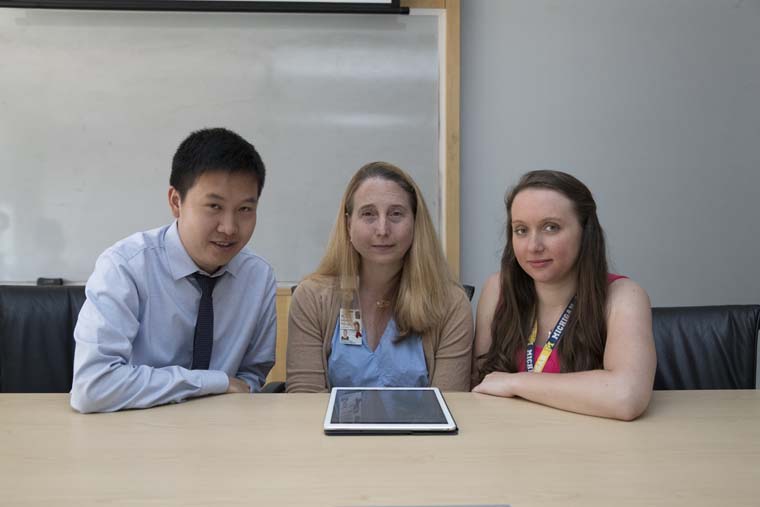It’s always lovely to see when our research is making life better for our patients, and here’s a concrete example of that: Our PositiveLinks app, which was designed to improve care for people living with HIV, has been shown to increase users’ consistency in keeping their doctor appointments and, ultimately, has improved their health outcomes.
Only 51 percent of participants in a study evaluating the smartphone app attended HIV clinic visits regularly at the beginning of the study. That increased to a whopping 88 percent at six months. Similarly, participants whose viral load had been suppressed – the desired state – jumped from 47 percent to 87 percent at six months.
The app’s developers credit its success to its warm and engaging approach. It offers the expected appointment reminders and health information, but it also asks questions each day about the user’s stress, mood and medication adherence. Importantly, it provides easy access to human care providers. In addition, it features a virtual support group where users can interact anonymously to ask questions, share their stories and find strength in the journeys of others. So it’s an app with a lot of humanity built into it.
“PositiveLinks was developed with significant input from our patients for the entire duration of the project,” explained our Rebecca Dillingham, MD, of our Ryan White Clinic. “We believe that this collaborative approach to creating and testing a clinical intervention made it more appealing to our patients and contributed to the terrific outcomes.”
The app is such a success that it’s going global: Dr. Dillingham and colleagues are rolling it out to new sites, including Lynchburg and Roanoke here in Virginia, but also to Irkutsk, Russia, where it will support people living with both HIV and tuberculosis.
